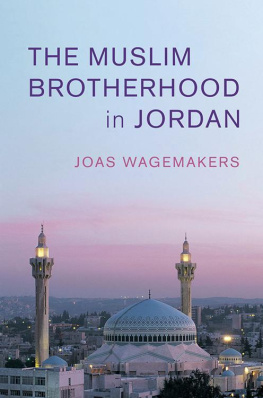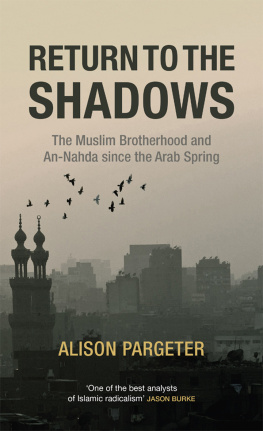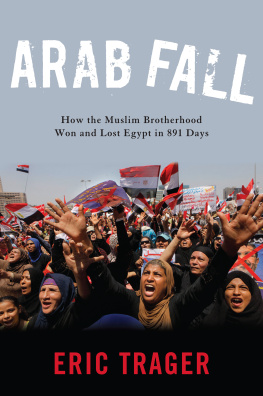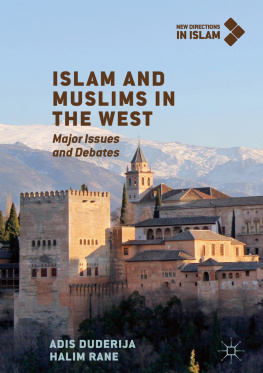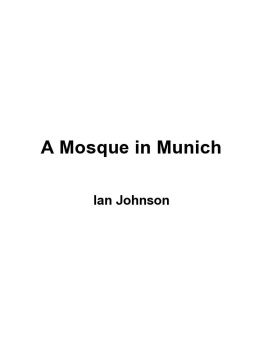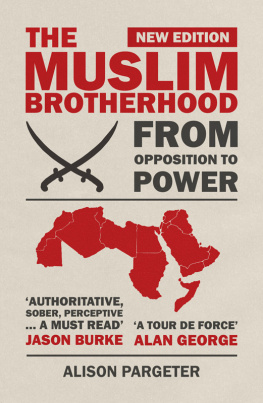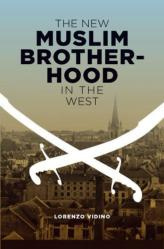Since its founding in 1945, the Jordanian Muslim Brotherhood has enjoyed decades of almost continuous parliamentary presence and state acceptance in Jordan, participating in elections, organising events and even establishing a hospital. In this detailed account of the Muslim Brotherhoods ideological and behavioural development in Jordan, Joas Wagemakers focusses on the groups long history and complex relationship with the state, its parliament and society. It shows how age-old concepts derived from classical Islam and the writings of global Islamist scholars have been used and reused by modern-day Jordanian Islamists to shape their beliefs in the context of the present-day nation-state. Far from its reputation as a two-faced global conspiracy bent on conquering the West, the Muslim Brotherhood is a deeply divided group that has nevertheless maintained a fascinating internal ideological consistency in its use of similar religious concepts. As such, it is part of, and continues to build on, trends in Muslim thought that go back hundreds of years.
Joas Wagemakers is Associate Professor of Islamic and Arabic Studies at Utrecht University. He has published extensively on Islamist ideology and Islamic movements, including A Quietist Jihadi: The Ideology of Abu Muhammad al-Maqdisi (2012) and Salafism in Jordan: Political Islam in a Quietist Community (2016), which won the British-Kuwait Friendship Society Book Prize in 2017.
University Printing House, Cambridge CB2 8BS, United Kingdom
One Liberty Plaza, 20th Floor, New York, NY 10006, USA
477 Williamstown Road, Port Melbourne, VIC 3207, Australia
314321, 3rd Floor, Plot 3, Splendor Forum, Jasola District Centre, New Delhi 110025, India
79 Anson Road, #0604/06, Singapore 079906
Cambridge University Press is part of the University of Cambridge.
It furthers the Universitys mission by disseminating knowledge in the pursuit of education, learning, and research at the highest international levels of excellence.
www.cambridge.org
Information on this title: www.cambridge.org/9781108839655
DOI: 10.1017/9781108884778
Joas Wagemakers 2020
This publication is in copyright. Subject to statutory exception and to the provisions of relevant collective licensing agreements, no reproduction of any part may take place without the written permission of Cambridge University Press.
First published 2020
A catalogue record for this publication is available from the British Library.
ISBN 978-1-108-83965-5 Hardback
ISBN 978-1-108-81353-2 Paperback
Cambridge University Press has no responsibility for the persistence or accuracy of URLs for external or third-party internet websites referred to in this publication and does not guarantee that any content on such websites is, or will remain, accurate or appropriate.
Contents
Preface
It is not very often that, a few weeks before finishing a book, one realises that one has been writing about something that apparently barely even existed, yet this is what happened to me with this study. After having read about, researched and written on the Jordanian Muslim Brotherhood for years an organisation founded in 1945 and still in existence today it was reported in June 2019 that a court of cassation in Jordan had ruled that the group was actually dissolved in 1953 for failing to rectify its status. As a result, the Brotherhood has been illegal since that year. This was somewhat surprising, as the Brotherhood has frequently participated in parliamentary elections, organised numerous events and even founded a hospital among other activities since 1953, which is surely an extraordinary feat for an organisation that does not actually exist.
If the Jordanian Brotherhood had really only existed for eight years, it might not have merited a book, but the reality is, of course, that the organisation has a long history in the Kingdom of Jordan and that the court ruling mentioned above is merely the latest chapter in a much longer saga of the states relationship with the organisation. Unlike in some other countries, the Brotherhood in Jordan has never experienced mass military repression, but has always enjoyed a more complex relationship with the Jordanian state, its parliament and its society. This book deals with how the Jordanian Muslim Brotherhood has negotiated its way through this relationship in the Islamic terms that characterise the organisation. As such, it shows that ideologically speaking the group relies on a discourse and a tradition that is far broader and deeper than the Brotherhood itself and also much older than the eight years the court gives the organisation credit for.
Acknowledgements
In 2011, when I received a Veni grant from the Netherlands Organisation for Scientific Research (NWO) to start a research project on Islamic activism in Jordan, I had a pretty good idea about what I wanted to do. It became clear to me rather quickly, however, that the subject of Salafism, which was included in my original research proposal, did not really fit in with my specific plans. I therefore decided to write a book on Salafism in Jordan first (published by Cambridge University Press in 2016) and then focus on my original plans with regard to the Muslim Brotherhood. The present publication, which deals with this organisation, is close to my original research plan and, in its set up at least, represents more or less the book that I had initially wanted to write. Although the grant ran from 2012 to 2016, I would still like to thank the NWO for providing me with the funds to make this book possible.
The initial research for the proposal that formed the basis of this book was done at the International Institute of Social History in Amsterdam. I thank the staff there for helping me to get started and for providing me with sources I could not find elsewhere. The research for the book itself was partly done while working at the Department of Religious Studies at Radboud University in Nijmegen and I thank my colleagues there for providing me with a pleasant working environment. Further research was done at the Department of Philosophy and Religious Studies at Utrecht University, where I started working in 2015 and where the book was also written, and at the Department of Near Eastern Studies at Princeton University, where I was a visiting fellow in 2016. I thank my colleagues at Utrecht, particularly Nico Landman, Christian Lange, Kadir Trkmen, Corn Hanssen and Mehdi Sajid, for helping to make our Islamic and Arabic studies section a joy to work at. I also thank the staff at Princeton, particularly Bernard Haykel, for putting up with me for a few wonderful months.

